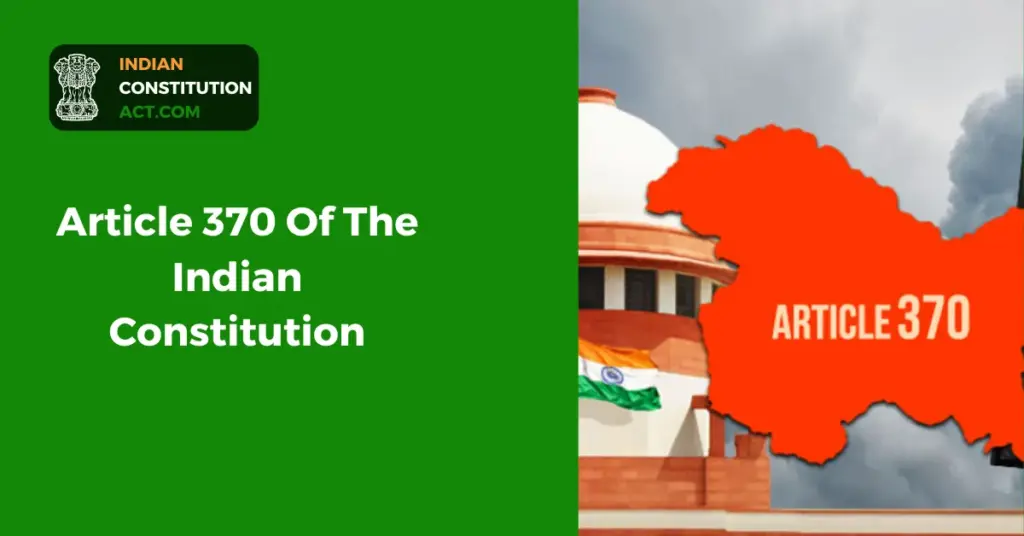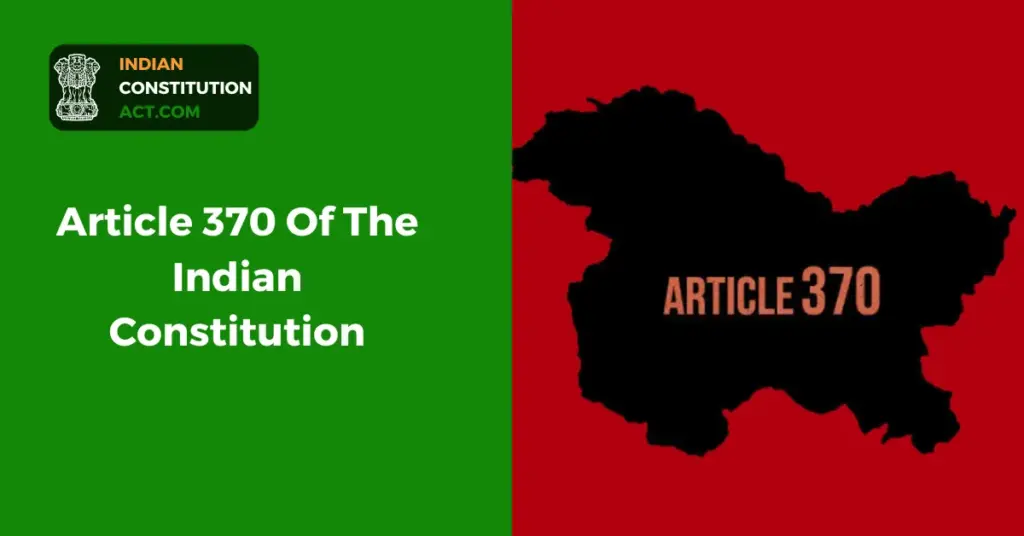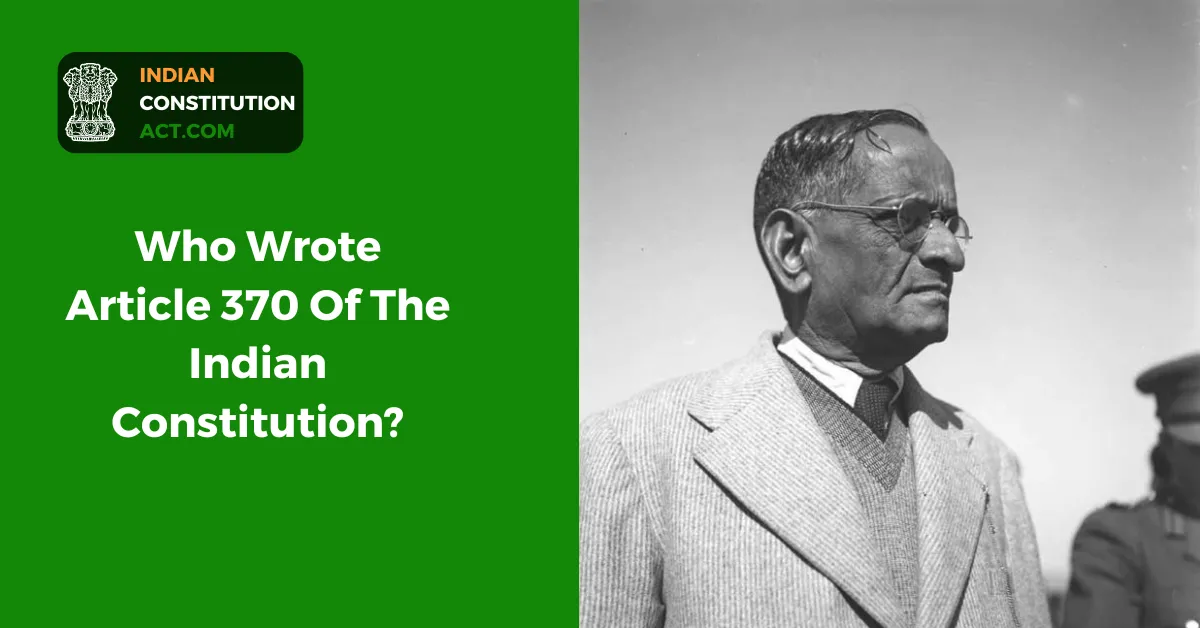Article 370 of the Indian Constitution, was one of the most controversial articles ever written. It got removed from our constitution after a big decision by five judges of the Supreme Court. The main talk comes from who wrote this article in our Constitution, so if you don’t know who wrote Article 370, read this blog to know.
Table of Contents
Who Wrote Article 370 Of The Indian Constitution?

The Article 370 of the Indian Constitution holds a very special status to J & K which is a region disputed by India, Pakistan, and China. This article was officially drafted by N Gopalaswami Ayyangar. He was a member of the Constituent Assembly of India. he added this article to the Constitution as a “Temporary Provision” in 1949 officially.
- This article guarantees special status to Jammu & Kashmir
- This article allows state assembly to make its own Constitution
- This article separate set of laws for state residents like citizenship, ownership of property, and fundamental rights.
- In this article, citizens from other states cannot purchase land or property in the state
- The center cannot declare a financial emergency under Article 360 in the state.
What Was Article 370 Of The Indian Constitution?
Article 370 of the Indian Constitution states the temporary provisions concerning the State of Jammu and Kashmir:
(1) Notwithstanding anything in this Constitution,—
(a) the provisions of Article 238 shall not apply to the State of Jammu and Kashmir;
(b) the power of Parliament to make laws for the said State shall be limited to—
(i) those matters in the Union List and the concurrent List which, in consultation with the Government of the State, are declared by the President to correspond to matters specified in the Instrument of Accession governing the accession of the State to the Dominion of India as the matters concerning which the Dominion Legislature may make laws for that State; an
(ii) such other matters in the said Lists as, with the concurrence of the Government of the State, the President may by order specify.
Explanation.—For this article, the Government of the State means the person for the time being recognized by the President as the Maharaja of Jammu and Kashmir acting on the advice of the Council of Ministers for the time being in office under the Maharaja’s Proclamation dated the fifth day of March 1948;
Also read: What Is Article 270 Tax Of The Indian Constitution?
(c) the provisions of Article 1 and this article shall apply to that State;
(d) such of the other provisions of this Constitution shall apply about that State subject to such exceptions and modifications as the President may by order1 specify:

Provided that no such order which relates to the matters specified in the Instrument of Accession of the State referred to in paragraph (i) of sub-clause (b) shall be issued except in consultation with the Government of the State:
Provided further that no such order which relates to matters other than those referred to in the last preceding provision shall be issued except with the concurrence of that Government.
(2) If the concurrence of the Government of the State referred to in paragraph (ii) of sub-clause (b) of clause (1) or in the second proviso to sub-clause (d) of that clause be given before the Constituent Assembly to frame the Constitution of the State is convened, it shall be placed before such Assembly for such decision as it may take thereon.
(3) Notwithstanding anything in the foregoing provisions of this article, the President may, by public notification, declare that this article shall cease to be operative or shall be operative only with such exceptions and modifications and from such date as he may specify:
Provided that the recommendation of the Constituent Assembly of the State referred to in clause (2) shall be necessary before the President issues such a notification.
